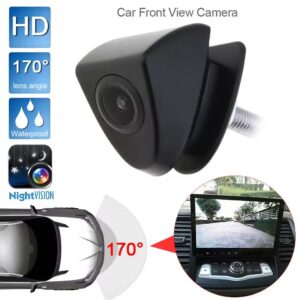Common Car Rearview Camera Issues and Fixes
Car rearview cameras have become essential safety features, providing drivers with a clear view of the area behind their vehicle. Despite their importance, these cameras can sometimes encounter issues that may affect their performance. In this blog post, we¨ll explore some common problems with car rearview cameras and offer practical solutions to help you resolve them. For specific product details and features, you can refer to the SZDFPLS website.However, in other words, we should know more about it. commercial vehicle camera The law of development has brought new vitality to the whole industry and revitalized the market. https://szdfpls.com
1. Image Quality Issues
Problem: Poor image quality can manifest as blurry images, low resolution, or color distortion. This can make it difficult to see objects clearly, defeating the purpose of the rearview camera.
Solution:
Check the Lens: Ensure the camera lens is clean and free from dirt or moisture. Wipe it gently with a soft cloth.
Adjust Camera Settings: Use the camera¨s built-in settings, such as automatic white balance and backlight compensation, to enhance image quality. For instance, the CCD sensor in the camera, as seen in the SZDFPLS product, should provide clear images with a resolution of 756 〜 720 pixels and horizontal resolution of 480TVL.
Inspect Wiring: Ensure that the video cable, which is typically 6 meters long, is securely connected and not damaged. A loose or damaged cable can affect image quality.
2. Night Vision Problems
Problem: If the rearview camera is not performing well in low light conditions, it may have inadequate night vision capabilities.
Solution:
Minimum Lighting: The camera should have a minimum lighting requirement of 0.2 lux for clear visibility in dark conditions. Check if the camera meets this specification and if it¨s functioning correctly.
Check Backlight Compensation: Ensure the camera¨s automatic backlight compensation is active. This feature helps balance the exposure and improve visibility in low light.
Inspect Installation: Make sure the camera is correctly positioned and not obstructed by any objects that might block the view.
3. Image Distortion or Flickering
Problem: Distorted or flickering images can be frustrating and may indicate electrical or connection issues.
Solution:
Inspect Power Supply: Ensure the camera operates with a stable 12V DC power supply and check the power cable for any damage. The SZDFPLS camera operates at approximately 200mA, so verify that the power supply meets these specifications.
Check Video Output: Verify that the RCA video output (Vpp / 75Ohm) is correctly connected. A loose or faulty connection can cause image distortion.
4. Connectivity Issues
Problem: If the camera isn¨t displaying an image on the monitor, there may be connectivity issues.
Solution:
Verify Connections: Double-check that all cables are securely connected. The video cable should be properly attached to both the camera and the monitor.
Test with Another Monitor: If possible, test the camera with a different monitor to rule out monitor issues.
Check Cable Length: Ensure the video cable (6 meters) is not excessively bent or damaged, as this can impact connectivity.
5. Weather-Related Issues
Problem: Extreme temperatures or weather conditions can affect the performance of the rearview camera.
Solution:
Operating Temperature: Ensure that the camera operates within its specified temperature range of -20<C to 60<C. If you¨re in an area with extreme temperatures, consider using additional protection for the camera.
Storage Temperature: When not in use, the camera should be stored within the recommended temperature range of -30<C to 60<C to prevent damage.
Check Seals and Housing: Ensure the camera¨s housing is properly sealed to protect against water and dust ingress.